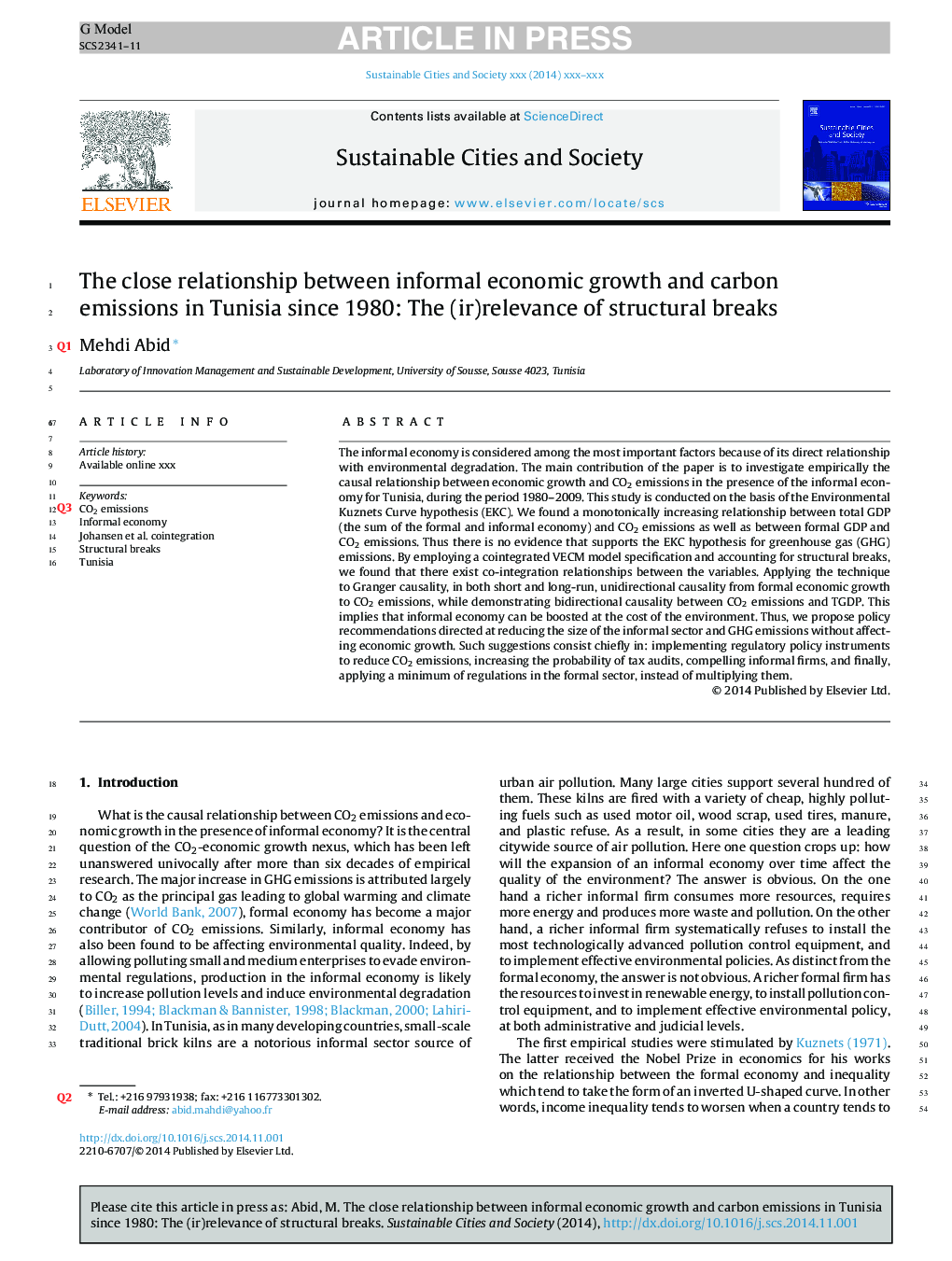| Article ID | Journal | Published Year | Pages | File Type |
|---|---|---|---|---|
| 6776406 | Sustainable Cities and Society | 2015 | 11 Pages |
Abstract
The informal economy is considered among the most important factors because of its direct relationship with environmental degradation. The main contribution of the paper is to investigate empirically the causal relationship between economic growth and CO2 emissions in the presence of the informal economy for Tunisia, during the period 1980-2009. This study is conducted on the basis of the Environmental Kuznets Curve hypothesis (EKC). We found a monotonically increasing relationship between total GDP (the sum of the formal and informal economy) and CO2 emissions as well as between formal GDP and CO2 emissions. Thus there is no evidence that supports the EKC hypothesis for greenhouse gas (GHG) emissions. By employing a cointegrated VECM model specification and accounting for structural breaks, we found that there exist co-integration relationships between the variables. Applying the technique to Granger causality, in both short and long-run, unidirectional causality from formal economic growth to CO2 emissions, while demonstrating bidirectional causality between CO2 emissions and TGDP. This implies that informal economy can be boosted at the cost of the environment. Thus, we propose policy recommendations directed at reducing the size of the informal sector and GHG emissions without affecting economic growth. Such suggestions consist chiefly in: implementing regulatory policy instruments to reduce CO2 emissions, increasing the probability of tax audits, compelling informal firms, and finally, applying a minimum of regulations in the formal sector, instead of multiplying them.
Keywords
Related Topics
Physical Sciences and Engineering
Energy
Renewable Energy, Sustainability and the Environment
Authors
Mehdi Abid,
